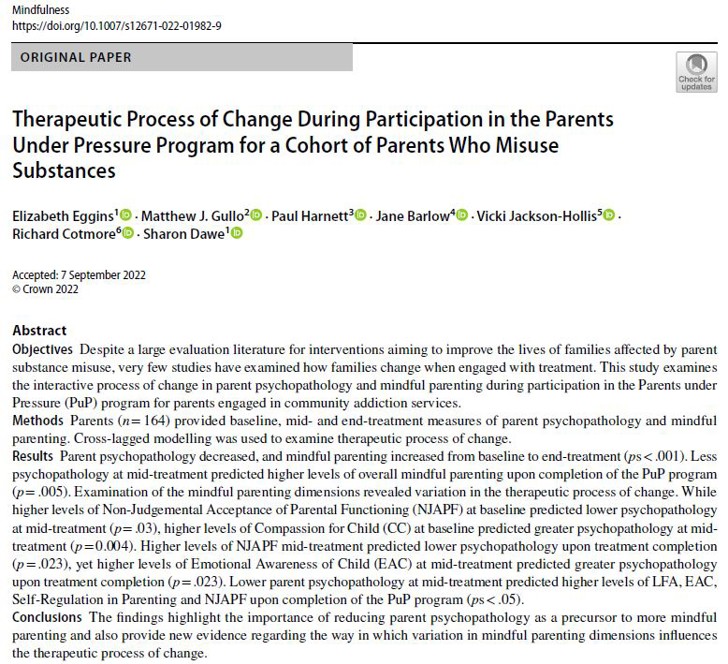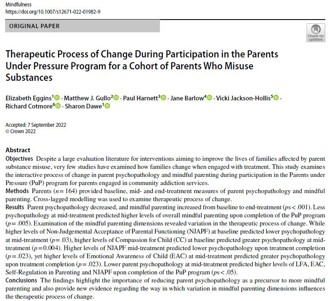ABSTRACT
Objectives: Despite a large evaluation literature for interventions aiming to improve the lives of families affected by parent substance misuse, very few studies have examined how families change when engaged with treatment. This study examines the interactive process of change in parent psychopathology and mindful parenting during participation in the Parents under Pressure (PuP) program for parents engaged in community addiction services.
Methods: Parents (n = 164) provided baseline, mid- and end-treatment measures of parent psychopathology and mindful parenting. Cross-lagged modelling was used to examine therapeutic process of change.
Results: Parent psychopathology decreased, and mindful parenting increased from baseline to end-treatment (ps < .001). Less psychopathology at mid-treatment predicted higher levels of overall mindful parenting upon completion of the PuP program (p = .005). Examination of the mindful parenting dimensions revealed variation in the therapeutic process of change. While higher levels of Non-Judgemental Acceptance of Parental Functioning (NJAPF) at baseline predicted lower psychopathology at mid-treatment (p = .03), higher levels of Compassion for Child (CC) at baseline predicted greater psychopathology at mid-treatment (p = 0.004). Higher levels of NJAPF mid-treatment predicted lower psychopathology upon treatment completion (p = .023), yet higher levels of Emotional Awareness of Child (EAC) at mid-treatment predicted greater psychopathology upon treatment completion (p = .023). Lower parent psychopathology at mid-treatment predicted higher levels of LFA, EAC, Self-Regulation in Parenting and NJAPF upon completion of the PuP program (ps < .05).
Conclusions: The findings highlight the importance of reducing parent psychopathology as a precursor to more mindful parenting and also provide new evidence regarding the way in which variation in mindful parenting dimensions influences the therapeutic process of change.

